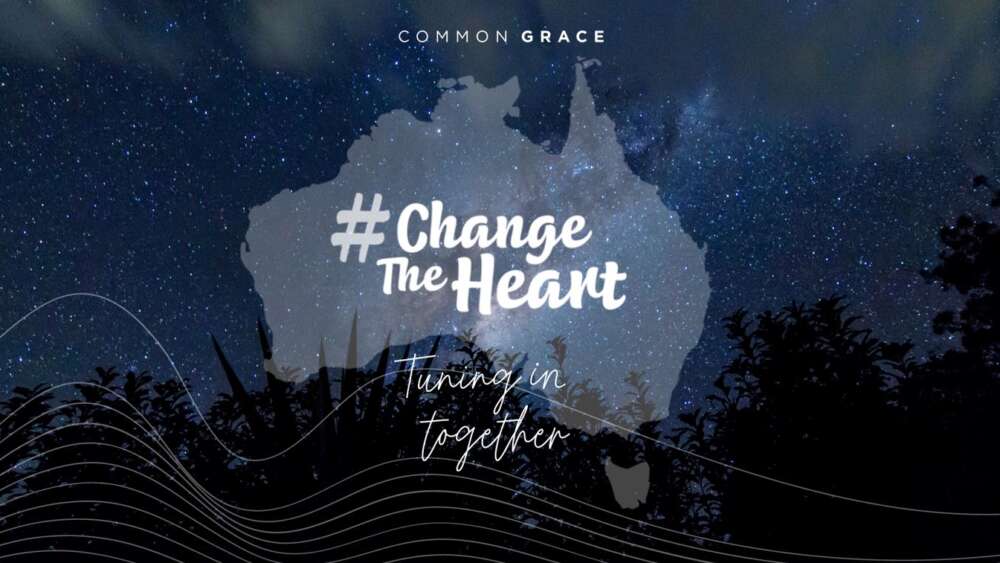Step back from #ChangeTheDate and Change the Heart instead, say Aboriginal Christian leaders
Aboriginal Christians are calling the Church to recognise January 26 as a Day of Mourning in 2021.
Common Grace CEO Brooke Prentis, a descendant of the Wakka Wakka peoples in Queensland, said: “We need to take a step back from #changethedate.”
“It’s much more than that. As I’ve matured, my own conversation has matured. And we also need to mature as a nation,” said Prentis, in a webinar late last year, about how to mark January 26.
Common Grace is advocating changing the name of Australia Day to a ‘Day of Mourning’.
“It would have a similar mood to Anzac Day, where we lament and acknowledge the pain of our brothers and sisters in Christ, and the true history that Aboriginal and Torres Strait Islander people have experienced.”
Prentis says there should then be a public holiday during NAIDOC Week in July (NAIDOC stands for National Aborigines and Islanders Day Observance Committee), which seeks to celebrate the history, culture and achievements of Australia’s First Nations peoples.
“This would be a day to celebrate the oldest culture in the world,” said Prentis.
“Unless there is a change of heart in this country, we will not see reconciliation.” – Brooke Prentis
Prentis offered September 1 – National Wattle Day – as a possible date for a national day of celebration.
“For me, the wattle is a beautiful symbol. It’s a sign of resilience. It predates colonisation. And our Creator placed the wattle here, and it is still with us today. There are many different types of wattle varieties. Each is beautiful. Each is unique. We are calling for unity in Australia, but unity is not sameness.”
“I think this could bring unity in our diversity,” said Prentis.
On the evening before January 26, Common Grace organises a national prayer event called #ChangeTheHeart, led by Aboriginal Christian leaders. This year, the event will be simulcast for the first time on ACCTV, as well as online and on radio.
“Unless there is a change of heart in this country, we will not see reconciliation,” says Prentis. “We need to take a posture of listening, learning and loving our Aboriginal and Torres Strait Islander peoples.
If you do find yourself at an Australia Day celebration this January 26, Prentis says, “why not share an Acknowledgement of Country? It’s a way of offering friendship and starting a conversation. You’re showing love by making sure your Indigenous brothers and sisters are thought of on a day when many of us are hurting.”
The Uniting Church of Australia has been observing a Day of Mourning since 2018, after accepting a request to do so made by the Uniting Aboriginal and Islander Christian Congress (UAICC).
This year, the Uniting Church has declared the Sunday before Australia Day – 24 January – a Day of Mourning. It will be an “expression of the Uniting Church’s commitment to justice and truth-telling.”
“It is monumental to have the Uniting Church stand and affirm who we are, our connection to country, our sovereignty, our life that has existed long before colonisation,” said Pastor Mark Kickett, interim Chair of the UAICC.
“Not just that, but the challenges for First Nations people having to survive, to find a voice, and to fight for justice that we as people desire.”
Aboriginal political activist and Christian man, William Cooper first advocated in the 1930s for churches to observe ‘Aboriginal Sunday’ on the Sunday nearest Australia Day. It was first celebrated in around 1940 across Protestant churches.
Common Grace is calling for all churches to reclaim Aboriginal Sunday, and use it as a way to stand in solidarity with First Nations peoples and to pray for justice.
Common Grace offers resources for churches seeking to hold an Aboriginal Sunday service this year.
Pray
Some prayer points to help
This is a prayer of lament and confession, from the Uniting Church of Australia
Merciful God,
we, the Second Peoples of this land, acknowledge and lament the injustice and abuse that has so often marked
the treatment of the First Peoples of this land.
We acknowledge and lament the way in which their land was taken from them
and their language, culture, law and spirituality despised and suppressed.
We acknowledge and lament
the way in which the Christian church
was so often not only complicit in this process but actively involved in it.
We acknowledge and lament that in our own time
the injustice and abuse has continued. We have been indifferent.
Gracious God, hear our acknowledgements — We have not loved you with our whole heart,
nor have we loved First Peoples and other neighbours as ourselves.
God of mercy, forgive us for our failures,
past and present and give us the grace today to make a fresh start.
By your Spirit transform our minds and hearts so that we may love as you have loved us,
that we may boldly speak your truth
and courageously do your will.
Through Jesus Christ our Lord. Amen.




